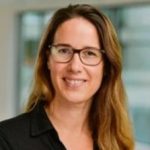AtrtWorks for sustainable livelihoods is a project that aims to explore the various ways in which art and artistic methods can give us insight on sustainable living and can be used to advocate for such living.

I am Caroline Archambault, an assistant professor in anthropology and development at Leiden University College, The Netherlands. Among my various interests I love to teach and train students on research, fieldwork, and the ethics of engagement. And I really enjoy developing experiential and FUN methods for deep and lasting learning.
ArtWorks developed unknowingly to me, yet now that is has a name it is a project I have been pursuing since the start of my teaching. It was a very gradual realization that in various teaching contexts I turn to the arts both to connect to the ways in which I different perspectives on the world.
As a consequence I could fill this website with all kinds of different and showcase the enormous collection of student creativity coming out of my courses, but, because of time and to help make it accessible/interest for you, I have to put some limits.
I have limited it to a course I teach on First Time Fieldwork.
I share this in hopes that it will inspire other teachers to make space for the arts in their courses on societal B2challenges and sustainable futures. I have tried to give credit to the approaches and methodologies I have been inspired by and whose work I am building from. I hope you will do the same.
![]()
I would like to recognize my amazing students. I am so grateful for their curiousity and courage to explore and experiment with these artistic techniques. It is wonderful to see them connect with and release their creative energies and to see them have so much fun pursuing their studies.
I would also like to give a special thanks to the managing committee of Oerol festival (www.oerol.nl) for giving us our first official gig-applying our creative methods to studying art activists at the festival. This experience has given the project great momentum.
This is a collection of artistic methods that I use with my students to have them reflect on the way they see the environment and equip them with the skills to access the perspectives of others.
These methods focus on developing the senses: seeing, hearing, feeling, smelling, touching.
These are different classroom and field activities that get students to use drawing to become more present in their environment and immediate context and circumstances and to better see their environment, the context
Lorem ipsum dolor sit amet, consectetur adipiscing elit. Mauris hendrerit egestas viverra.
This is a collection of artistic methods that I have explored with my students to help them learn about their environment.
ArtWorks: The Hague Magazine
Lorem ipsum dolor sit amet, consectetur adipiscing elit. Mauris hendrerit egestas viverra.
ArtWorks: Oerol Magazine
Lorem ipsum dolor sit amet, consectetur adipiscing elit. Mauris hendrerit egestas viverra.
If you are interested in learning more about the project and methods or you are an artist that would like my students to study your works, please get in touch!
